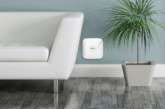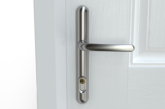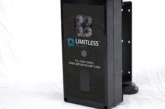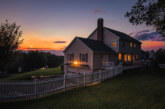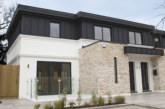
Approved Document Q will contribute greatly to the security of communities, but developers faced with discharging the requirements of this new legislation are advised to apply caution on several counts when following the guidelines to avoid the risk of delays in approval which could affect project deadlines and increase costs, says Jon Cole, National Operations Manager of Police initiative, Secured by Design.
Effective now, new Building Regulations come into force in England. As part of new statutory rules for building control, security measures will now apply to doors, windows and roof-lights in new homes and major refurbishments where there is a change in use of an existing building. This part of the Building Regulations is known as Approved Document Q (ADQ) or Part Q (Security: Dwellings).
ADQ is significant in that it marks the inclusion of physical security standards in Building Regulations for the first time. By drawing a clear distinction between products and design, the introduction of the ADQ follows a ministerial announcement earlier this year stating the Government’s intention to separate physical security from design policy. The new guidelines call for physical security products at entrances and other access points to be tested to ensure they meet minimum recognised standards for attack resistance, such as PAS 24, STS 202, LPS 1175 and LPS 2081.
The introduction of the new legislation has been welcomed by Police initiative Secured by Design (SBD), which has been working for the last twenty six years to support designing out crime principles through physical security and processes. It comprises of an established network of specialist crime prevention officers based within all UK Police forces. The initiative exists to provide advice to architects, builders and developers to ensure better neighbourhood security and protection for individual homes. SBD also accredits products that meet stringent security standards and lists these on its website for easy reference.
The new Building Regulations have increased the importance of sourcing the correct products for a particular application, which can require additional elements relating to their use or an understanding of possible conflicting parts of the Building Regulations, such as fire safety, as outlined in Approved Document B.
It is also imperative that tested products have been assessed for their fitness for purpose: For example, doorsets tested and approved for individual homes should not be substituted as entrances in communal dwellings, which are subjected to much heavier use.
In addition, testing relies on the product that is being installed to match precisely the configurations present during testing. In the case of doors and windows, modifying the specification of any one aspect, such as the locks, handles and even the fixings, could compromise the product’s security.
It is for this reason that Secured by Design’s approved product licensing scheme requires member companies producing building products to apply for independent third-party certification in addition to testing, which is the minimum regulatory requirement. Certification involves initial and on-going audit testing of the product, together with audits of the production facility. This approach ensures products are consistently produced to the required standard and will continue to meet the standard in use. Consistent testing has been proved to be just as important as the initial test and is fundamental to the impressive decreases in burglary rates and other crime types seen in SBD approved developments.
The need to support developers in dealing with the administrative burden of compliance and to provide additional detailed guidance where there is uncertainty is also the key driver behind the introduction of SBD’s National Building Approval (NBA) Scheme. This provides a new framework for discharging the requirements of ADQ. NBA streamlines the procurement process by agreeing all aspects of physical security within buildings of a given type before any development or refurbishment scheme is planned or built, thus removing the need for time-consuming and costly individual checks.
Renewed every three years, NBA certification is accepted by Local Authority Building Officers and Approved Inspectors. The scheme allows products and building types to be removed or added at any stage during this period with the reassurance that all necessary checks on products in terms of their compliance and suitability for the specific application will be monitored.
Further advice and guidance on ADQ and the NBA scheme is available from SBD www.securedbydesign.com

